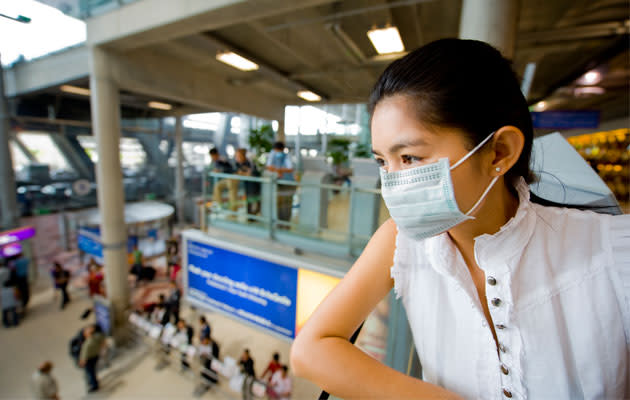 Fit to Post Health
Fit to Post HealthHealth precautions for travellers to the Middle East

A new deadly SARS-related virus has emerged in the Middle East and is causing concern among health officials in Singapore and across the world.
The new coronavirus, referred to as novel coronavirus or the Middle East respiratory syndrome coronavirus (MERS-CoV), causes a respiratory illness that can be fatal. The MERS coronavirus is distantly related to the SARS virus that caused a global pandemic 10 years ago. SARS (Severe Acute Respiratory Syndrome) affected 238 people and claimed 33 lives in Singapore in 2003.
Health officials in Singapore are warning individuals travelling to the Middle East to be vigilant and seek treatment immediately if they experience any lower respiratory tract infection symptoms in the 14 days following their return. Common symptoms include:
Fever
Cough
Shortness of breath
Some MERS-CoV patients have also been found to experience atypical symptoms such as diarrhoea.
Related article: Having fever? Could it be dengue?
“If you have visited the Middle East region, particularly Jordan, Qatar, Saudi Arabia and the United Arab Emirates (UAE) and develop fever and respiratory symptoms within 14 days after your return, you should see a doctor immediately,” says Dr Jenny Low, Senior Consultant at the Department of Infectious Disease, Singapore General Hospital (SGH).
The Ministry of Health in Singapore has also warned pilgrims visiting Saudi Arabia to get vaccinated against influenza and to wear a mask during their visit. A meningitis jab is compulsory for all Singaporean pilgrims going to Saudi Arabia.
The World Health Organization (WHO) has reported a total of 64 laboratory-confirmed cases of MERS-CoV and 38 deaths up to 17 June 2013. The illnesses occurred from September 2012 to June 2013. Of these 64 cases, the largest cluster of 49 cases has been reported in Saudi Arabia. A total of 32 people have died of the respiratory syndrome in Saudi Arabia, and most of the cases have been traced to the eastern region of the country.
The disease has been found to spread between people who are in close contact for a long period of time, including patients and the healthcare workers looking after them. There is a concern that the coronavirus may spread to different countries through travel, particularly in the 2013 summer holiday season. The exact source of the disease outbreak is still unknown.
Related article: 5 simple steps to ensuring illness-free travels abroad
Diagnosis and treatment of MERS-CoV respiratory syndrome
The MERS-CoV respiratory illness is diagnosed with a special laboratory test that confirms the presence of the coronavirus.
There is no specific treatment or cure for this new coronavirus illness which has been fatal in 50 per cent of cases so far. Treatment involves treating the symptoms. “There is no convincing data that the use of potent anti-viral agents, such as ribavirin and interferon, brings any benefit to patients,” says Dr Low.
The World Health Organisation (WHO) admits it has insufficient knowledge about the causes, symptoms and treatment of this new SARS-related coronavirus. WHO says, “Large gaps in our knowledge about this virus remain. Although extensive work has been done and is ongoing, it should be remembered that it often takes time for scientific investigations to produce results.”
WHO suggests that healthcare workers take infection control measures, and that individuals maintain high levels of vigilance and personal hygiene, to help contain the global spread of the coronavirus.
Tips to prevent respiratory tract infection and illness
Heed the following advice to help prevent the spread of respiratory illnesses such as the MERS-CoV respiratory syndrome:
Wash your hands, and the hands of your children, frequently with soap and water. When travelling, use an alcohol-based hand sanitizer to clean your hands.
Always wash your hands before a meal.
Learn the proper way to wash your hands. Just putting your hands under running water is not enough.
Cover your nose and mouth when you cough or sneeze. If using a tissue, throw it away after use.
Avoid touching your eyes, nose and mouth if your hands are not clean.
Avoid close contact and sharing food and utensils with anyone who is sick.
Related article: Did you know eggs can boost your immune system? How many can you have?
This article was written by Anjana Motihar Chandra for Health Xchange, with expert input from the Department of Infectious Disease, Singapore General Hospital (SGH).
Looking for doctor’s advice and health tips from the experts? Visit HealthXchange.com.sg, Singapore's trusted health and lifestyle portal.
Health Xchange's articles are meant for informational purposes only and cannot replace professional surgical, medical or health advice, examination, diagnosis, or treatment.


